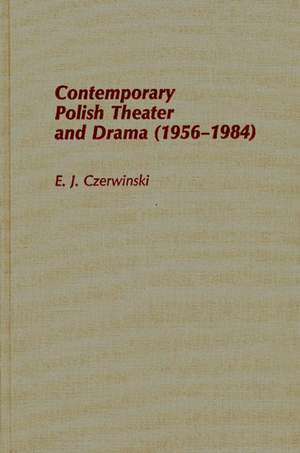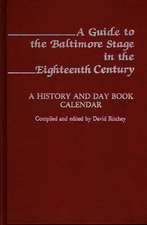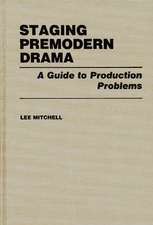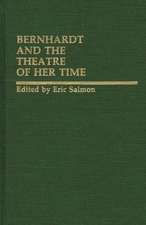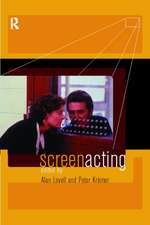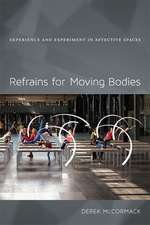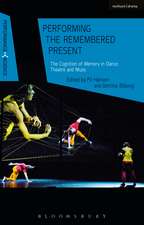Contemporary Polish Theatre and Drama (1956-1984): Studies in Population and Urban Demography,, cartea 26
Autor E J Czerwinskien Limba Engleză Hardback – 16 noi 1988
A valuable resource and guide for scholars, students, and theater professionals, this book will be appreciated by general readers with an interest in contemporary theater. It is an appropriate choice for large or small theater collections.
"Books on the Theater"
Although European critics have recognized Poland's distinctive contributions to theatre since the beginning of the twentieth century, American audiences first became acquainted with Polish drama only in the 1960s through the work of Jerzy Grotowski and his avant-garde Laboratory Theatre. Grotowski's productions served to stimulate interest in several other Polish dramatists whose plays have since been produced by Off-Broadway and university theatre groups. Until the publication of Professor Czerwinski's study, however, little information on Polish theatre as a whole has been available to English-speaking readers and audiences. This volume is the first to survey the work of the most important and representative contemporary Polish dramatists and directors and to analyze their contributions to both Polish and Slavic theatrical traditions.
A chronology of important premieres and other productions provides a guide to the unfolding of Polish drama since 1956. Descriptions of dramatic works give detailed summaries of plot, action, and characters as well as information on productions and how they fared under Polish censorship. The impact of censorship on dramatic writers is discussed, particularly the response of cloaking social commentary in elaborate metaphor. In this connection, the jester-priest metaphor, which was associated with the Polish Theater of the Absurd during the repressive 1960s, is of particular significance in the development of Polish drama. Professor Czerwinski looks at the influence of Dialog, the Polish monthly that served as the unofficial organ of artists and intellectuals during the 1950s and 1960s and introduced every important dramatist of the period. He considers the drama of the Solidarity and Post-Solidarity periods, thoughfully assessing the effects of the labor union movement on Polish theater.
Preț: 345.30 lei
Preț vechi: 556.08 lei
-38% Nou
66.09€ • 71.82$ • 55.55£
Carte tipărită la comandă
Livrare economică 21 aprilie-05 mai
Specificații
ISBN-10: 0313244022
Pagini: 174
Dimensiuni: 156 x 234 x 11 mm
Greutate: 0.43 kg
Editura: Greenwood Press
Colecția Praeger
Seria Studies in Population and Urban Demography,
Descriere
Books on the Theater
Although European critics have recognized Poland's distinctive contributions to theatre since the beginning of the twentieth century, American audiences first became acquainted with Polish drama only in the 1960s through the work of Jerzy Grotowski and his avant-garde Laboratory Theatre. Grotowski's productions served to stimulate interest in several other Polish dramatists whose plays have since been produced by Off-Broadway and university theatre groups. Until the publication of Professor Czerwinski's study, however, little information on Polish theatre as a whole has been available to English-speaking readers and audiences. This volume is the first to survey the work of the most important and representative contemporary Polish dramatists and directors and to analyze their contributions to both Polish and Slavic theatrical traditions.
A chronology of important premieres and other productions provides a guide to the unfolding of Polish drama since 1956. Descriptions of dramatic works give detailed summaries of plot, action, and characters as well as information on productions and how they fared under Polish censorship. The impact of censorship on dramatic writers is discussed, particularly the response of cloaking social commentary in elaborate metaphor. In this connection, the jester-priest metaphor, which was associated with the Polish Theater of the Absurd during the repressive 1960s, is of particular significance in the development of Polish drama. Professor Czerwinski looks at the influence of Dialog, the Polish monthly that served as the unofficial organ of artists and intellectuals during the 1950s and 1960s and introduced every important dramatist of the period. He considers the drama of the Solidarity and Post-Solidarity periods, thoughfully assessing the effects of the labor union movement on Polish theater.
Notă biografică
E. J. CZERWINSKI is Editor of Slavic and East European Arts, he is also on the Editorial Board of World Literature Today, Comparative Drama, Twentieth Century Literature, and Gradiva. Founder and director of the Slavic Cultural Center in Port Jefferson, New York, he was instrumental in introducing American audiences to the works of Witkiewizc, Gombrowicz, Mrozek, Rozewicz and other East European dramatists.
